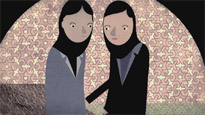Persecution based on Sexual Orientation and/or Gender Identity
Lesbian, gay, bisexual, transgender and intersex (LGBTI) persons are subject to imprisonment in more than 73 countries and to the death penalty in five countries (Iran, Mauritania, Rep. of Sudan, Saudi Arabia, Yemen and parts of Nigeria and Somalia) based on laws against same-sex relationships and activities.
Despite the advancement of rights in terms of same-sex unions and joint adoption recognition in some countries, individuals who self-identify as LGBTI are still targets of persecution, death threats, the death penalty and killings, corporal punishment, imprisonment, sexual and gender-based violence, physical assault, torture, forced “corrective therapies” (e.g. institutionalization, sex-reassignment operations, sexual assault and rape, drug injections, hormonal therapy, electroshock therapy, etc.) and accusations of immoral or deviant behavior; face denial of the right to assembly, expression and information, to marry and to adopt children in addition to discrimination in employment, health and education in many parts of the world.
While refugee claims based on sexual orientation are primarily recognized under the 1951 Convention relating to the Status of Refugees ground of membership of a particular social group, asylum seekers fleeing violence and human rights abuses on the grounds of their sexual orientation and/or gender identity still face substantial difficulties presenting their claims and receiving refugee status based on these claims. Some of the contributing factors relate to the over-emphasis on sexual conduct rather than orientation and/or identity, criminalization, the role of social visibility in determining ‘membership in a particular social group’, and assessments of ‘evidence’ and credibility.
Refugees fleeing persecution on the grounds of their sexual orientation and/or gender identity and who meet the eligibility and admissibility requirements of the Canadian resettlement program can be resettled to Canada under the Private Refugee Sponsorship Program. It can be more difficult to identify LGBTI refugees for private sponsorship as it is often not safe for LGBTI asylum seekers to disclose their sexual orientation and/or gender identity in the country of asylum. However, with the help of local NGOs and international humanitarian organizations, such as the UNHCR, a number of LGBTI refugee cases have been brought to the attention of private sponsoring groups in Canada and have already arrived or are in process of being sponsored to come to Canada. LGBTI refugee cases are identified for sponsorship and need sponsors under the Blended VOR Initiative. For more information contact the RSTP.
Help protect LGBTI Refugees:
Resources
RSTP Info Sheet:
Persecution Based on Sexual Orientation & Gender Identity
Map:
Lesbian and Gay Rights in the World
Report::
ILGA State-Sponsored Homophobia Report (2019)
Animated Videos (by ORAM)::


